In my fourth article on Costa Rica, I had the opportunity to join one of the funds best aligned with our investment thesis in our portfolio, EcoEnterprises, on a visit to one of their portfolio companies, Pronuvo’s insect protein operation. We invested in EcoEnterprises fund five years ago to diversify our investment portfolio in the bioeconomy beyond Brazil, extending to other countries in Latin America. With offices in Colombia and Costa Rica, Eco Enterprises has thirty years of experience investing in the region beyond the traditional equity or debt only structures. They find alternative ways of combining the two to be able to support a large range of businesses in the region that grow in partnership with nature. Many of those in the food industry.
I first met the Carmona brothers, founders of Pronuvo, when I found myself stranded in Costa Rica during the pandemic. At the time, they were raising funds to construct the first mass-production facility for insect protein in Guapiles, near the Caribbean port of Limon in Costa Rica. While other players in the market had already succeeded in countries like the Netherlands, France, and Canada, they believed it made more sense to establish their factory in Costa Rica, the native habitat of the Black Soldier fly, and in close proximity to fish farms in need of sustainable feed sources to replace unsustainable fish meal. EcoEnterprises proved to be the perfect partner for them, and I was happy to see the deal coming through.
Fast forward to 2024, and Pronuvo now operates a fully functional factory that converts waste from a major multinational banana company into high-quality protein extracted from the larvae of the Black Soldier fly. Pronuvo’s model exemplifies a circular economy, utilizing the Black Soldier fly to convert waste—primarily banana peels—into protein for fish farms, poultry, and, most recently, pets. With the approval of insect protein for use in pet food in the US and Europe, a multi-billion-dollar market for insect protein has opened up, and Pronuvo is well-positioned to capitalize on it.
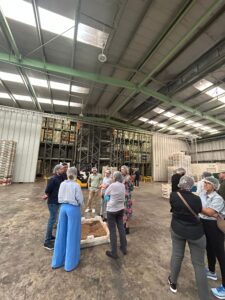
During our visit to their factory, we received a comprehensive tour of the process, from breeding the flies and collecting their eggs to allowing them to hatch and letting the larvae consume tons of banana peel waste and other waste from nearby fruit operations over a period of 10 days. This increases their mass by a factor of 10,000, producing a rich source of protein, fats, and amino acids with numerous health benefits as a feed source for animals. The operation also yields a natural fertilizer made from the remaining waste after digestion.
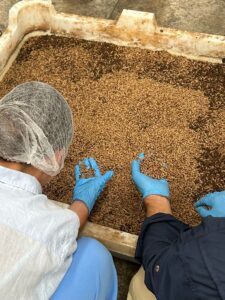
I must admit, I was mentally prepared to be surrounded by a cloud of buzzing flies in their facility. However, it was a much more gentle experience. The Black Soldier fly has a lifespan of 45 days, with only 5 days spent in their fly form for reproduction. The fly does not even have a mouth as it does not feed in these five days, not carrying any harmful bacteria, nor posing any environmental risk.

The potential of the Black Soldier fly for insect protein production is immense, as is its potential for waste management. The larvae can consume any food waste, and Pronuvo has tailored all their processes to optimize the speed and health of the larvae when processing banana waste, considering the waste stream is only 14 km away. However, the operation can adapt to utilize whatever food processing waste is available. With billions of farmed fish, poultry, and pets to feed, not to mention the minimal energy consumption, water usage, and carbon emissions compared to conventional protein production—whether animal- or plant-based—the benefits of insect protein are clear. Requiring minimal space and boasting a production cycle of just half a month compared to 36 months for beef or 6 months for soy, insect factories can efficiently convert waste into a high-quality protein source with minimal water usage. Stacking hundreds of trays with waste and larvae in a warehouse the size of a typical stock facility, particularly in the case of Costa Rica, where maintaining room temperature is unnecessary.
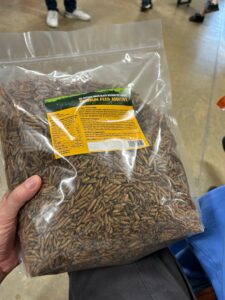
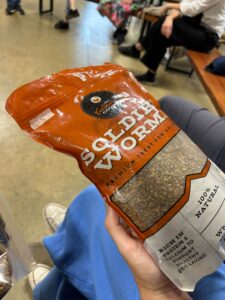
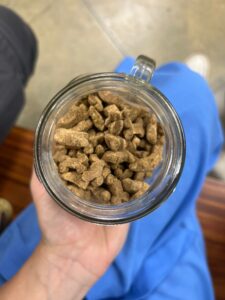
Pronuvo envisions a well-developed market with similar factories to the one they have built, strategically located near any commercial food production generating food waste. This promising circular model applies a natural solution to the massive challenge of food production amidst climate change. Human consumption is still a controversial topic and not on their horizon, but with the promising economics, we might get to try an insect protein banana shake soon.
To learn more about Eco Enterprises and all the businesses they support in Latin America ➡ https://ecoenterprisesfund.com/
For more information about Pronuvo ➡ https://pronuvo.com/eng/our-products/.

